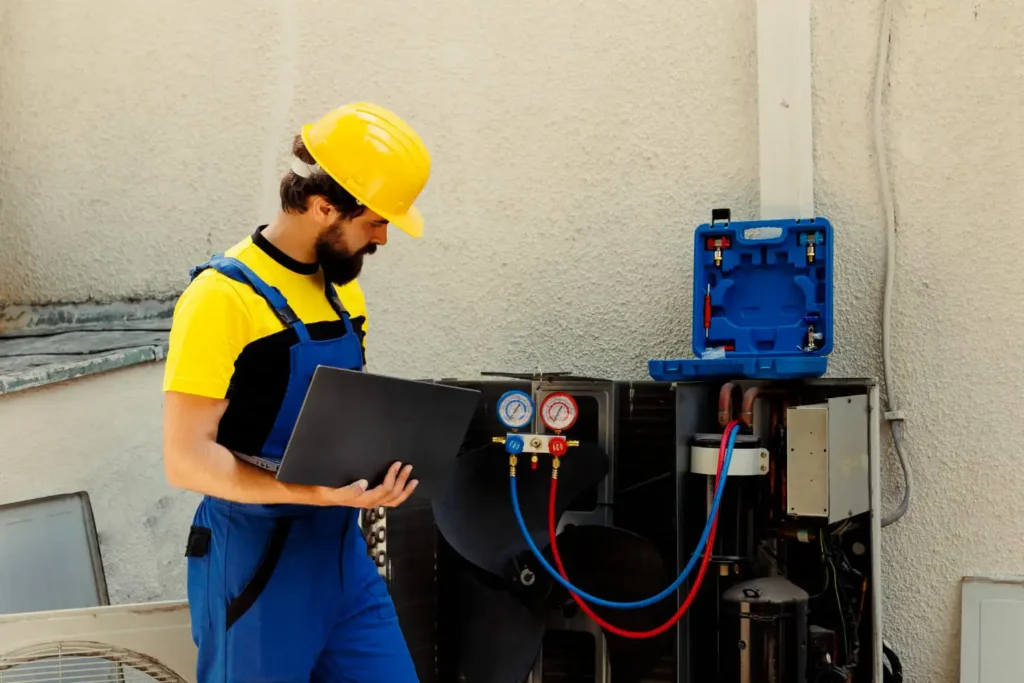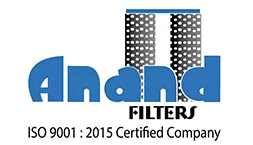
5 Signs Your Air Compressor Air Filter Needs Replacement
An air compressor is an essential item in both home and commercial settings. Much like how a vehicle relies on its filters to shield the engine from harmful debris, an air compressor also depends on several filtration components to protect its inner workings. Among these, the air filter stands out as one of the most essential defenders, blocking contaminants before they can compromise the system’s performance. As you can expect, these filters require periodic replacement due to their increasing dirtiness.
The replacement air filter for air compressors is essential for keeping dust, debris, and other impurities out of your compressed air system.
Let’s discuss five indicators that signal it’s time to replace air compressors’ air filters, how often you should consider doing it, and how Anand Filters offers dependable solutions for your air filtration needs.
Sign 1: Reduced Airflow or Pressure Drop
The most obvious indication that you need a new replacement air filter for air compressors is a considerable decrease in airflow or pressure. Air filters do a great job of trapping dust and debris, but over time, they can become overloaded. When buildup occurs, it restricts the filter’s ability to allow air through.
If the blower or vacuum pump seems to be losing the power or isn’t generating enough pressure or suction, a clogged filter might be the culprit behind the performance drop. As a result, the system has to work harder, which lowers efficiency and increases component wear.
Your air compressor may produce unequal pressure if your tools aren’t operating at their peak efficiency. A faulty pressure regulator, internal leaks, or worn-out seals are frequently the causes of fluctuating air pressure.
Sign 2: Unusual Noises or Overheating
Have you heard odd noises coming from your compressor lately? Or is the temperature higher than usual? An unclean or damaged air filter may be the cause of both problems.
Filters regulate airflow; clogged filters can produce odd noises like whistling or increased motor strain. This could indicate that the air is struggling to pass through the system. Take a moment to inspect your filter closely—there might be a blockage forming that’s affecting performance. These alterations suggest that something is hindering airflow and that you must install a new filter.
In addition to being less effective, an overheated compressor poses a significant safety risk. Overheating can result in premature wear and tear, an elevated chance of component failure, and, in severe situations, fire hazards.
Sign 3: Increased Energy Consumption
Another sign that your filter for air compressors needs to be changed is an apparent rise in energy use. A dirty filter reduces your equipment’s efficiency, raising energy expenses by making motors use more power.
Energy cost will increase, if your compressor is working very hard. Poor operation caused by air leaks or worn-out equipment could also result in higher utility bills. If you observe an increase in power consumption, examine and replace the filter.
To ensure ideal energy usage, use a high-quality replacement air filter for air compressors, such as those made by Anand Filters. Without sacrificing the airflow the filters offer superior filtering.
Sign 4: Visible Dirt or Damage on the Filter
Sometimes, the signs are easy to spot without any special tools. One clear red flag is the appearance of water or grease in the compressed air, signaling potential issues. This occurs when the compressor’s moisture control system malfunctions.
The filter may be covered in dust, grime, or debris upon visual inspection. Proactive replacement of filter can avoid costly damage and filter performance drop.
The interior parts of the compressor may sustain damage due to a damaged filter’s diminished capacity to block impurities.
You can restore performance and prolong the life of your air compressor by replacing it with a high-quality filter for air compressors.
Sign 5: Poor Air Quality or Contaminants in Output
A blocked air filter could be the culprit behind the buildup of dust and debris. Air compressors are designed to supply dry, clean air. A clogged filter may be the cause of an unusually high level of dust. The presence of oil, dust, or other impurities in the air output indicates that the filter isn’t functioning correctly.
It could harm one’s health, particularly in hospitals or food processing facilities where air purity is vital.
Using a clean replacement air filter for air compressors helps preserve the integrity of the compressed air system and guarantees improved air quality.
How Often Should You Replace Your Air Compressor Filter?
Investing in an air compressor is a big step for any business, and protecting that asset means keeping both the machine and its filters in top shape. Air intake filters are designed to block any dust and debris before they can enter the system.
Without proper maintenance, these particles can slowly wear down critical components like the compressor element, valves, internal filters, and even the compressor oil. Over time, this contamination can lead to reduced efficiency, more frequent repairs, and a shorter overall lifespan for the equipment.
Dirty oil or an air filter can reduce your compressor efficiency. Consequently, the compressor’s lifespan will shorten, leading to a need for earlier replacement, while also driving up operational expenses.
Air compressor filters in industries should be changed annually or more frequently in areas with high pollution levels. Given the extreme conditions of hot, humid summers or regular sandstorms, it’s recommended to change the filter every six months or after approximately 4000 hours of operation.
Factors such as air compressor running hours and the quality of the air supply can determine the quantity of your filter replacements.
Conclusion
Taking good care of your air compressor’s air filter is the first step in preserving its longevity and efficiency. A replacement air filter for air compressors is essential to guarantee that your equipment operates at its best, not merely as a maintenance item.
Never disregard warning indications, such as decreased airflow, overheating, elevated energy use, obvious dirt, and tainted output. These signs clearly show that you need to fix your filter for the air compressor immediately.
In addition to increasing machine performance and air quality, replacing a damaged or clogged filter also helps avoid future expensive repairs. Businesses like Anand Filters provide dependable, high-quality air filters to satisfy the needs of different settings and applications.

